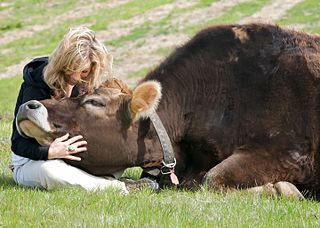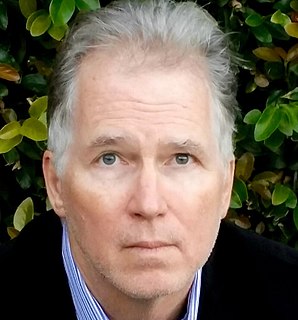A Quote by Jo Robinson
I have come across a dozen studies that shows that you get more phytonutrients and more minerals and vitamins from organic, but there are also studies that show that plants raised conventionally have more phytonutrients. And they trace it to the amount of nitrogen in the fertilizer used on conventional farms. The gold standard is choosing the most nutritious varieties and raising them organically, and that's what I recommend.
Related Quotes
The phytochemicals, antioxidants, and fiber- all of the healthful components of plant foods- originate in plants, not animals. If they are present, it is because the animal ate plants. And why should we go through an animal to get the benefits of the plants themselves? To consume unnecessary, unseemly, and unhealthy substances, such as saturated fat, animal protein, lactose, and dietary cholesterol, is to negate the benefits of the fiber, phytonutrients, vitamins, minerals, and antioxidants that are prevalent and inherent in plants.
For nearly a decade now, I've been teaching others how to thrive by filling their bodies with energizing vitamins, nutrients, minerals, antioxidants, and phytonutrients. Not a day goes by when someone doesn't write me to say, "Thanks, I feel better now, too." Those letters from my readers are my digital cardinals.
The technical term for phytonutrients is polyphenols. They are substances produced by plants, a lot of them for self-defense. Twenty-five thousand different ones have been identified. Vitamins E, C, and beta-carotene are examples. Many of them are potent antioxidants, while some don't have antioxidant activity but boost our own antioxidant defense system. Others are involved in communication between cells, many affect gene expression, and others have detoxifying functions.
There's a lot of research that suggests that organic yields are close or superior to conventional yields depending on factors like climate. In a drought year an organic field of corn will yield more - considerably more - than a conventional field; organic fields hold moisture better so they don't need as much water. It simply isn't true that organic yields are lower than conventional yields.
If you look across a host of measures at adoption studies, fraternal v. identical twin studies, twins-raised-apart studies, the history of early childhood intervention research, naturally-occurring experiments, differences between societies, changes over history, and so forth, you tend to come up with nature and nurture as being about equally important: maybe fifty-fifty. The glass is roughly half-full and half-empty.
Let me say two things about the costs - one is that there are detailed studies that show this, this is what some of the Stanford studies show, in fact, that we get so healthier, so much more healthy, when we eliminate fossil fuel pollution - 200,000 [fewer] premature deaths a year for example. And that's just the death part of it. Not to mention the asthma part of it, the heart attacks and the strokes and the cancers. And we also call for a healthy food system that prioritizes sustainable healthy local food production.
In fact, I don't advocate any particular diet for anyone. I think that's a very personal decision that people have to make. I will say this, however: There are more and more studies in terms of the health benefits of veganism; there are more and more studies that are showing that a properly executed vegan diet is highly beneficial for cleansing, for detoxing, in addition to lowering the risks for and even ameliorating chronic illness. We all have our own body constitutions and cultural food ways and personal tastes that determine what will work for us.































